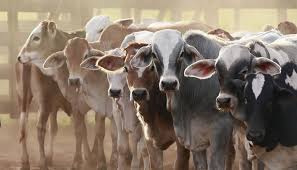Nigeria to Vaccinate 1.4 Million Animals in 2025 Under Major Livestock Health Boos
Nigeria to Vaccinate 1.4 Million Animals in 2025 Under Major Livestock Health Boos
By Achimi Muktar
In a bold move to prevent future livestock disease outbreaks and boost public health, Nigeria’s Livestock Productivity and Resilience Support Project (L-PRES) has announced plans to vaccinate 1.4 million animals in 2025.
The announcement was made by Sanusi Abubakar, the National Project Coordinator of L-PRES, during a five-day Training of Trainers (ToT) workshop for animal health officers in Abuja.
Themed “Biosecurity, Herd Health, Udder Health, and Integrated Pest Control Management,” the intensive program was designed to equip health workers with cutting-edge knowledge to deliver effective animal healthcare services, especially in rural areas where veterinary access is limited.
Fighting Disease with Knowledge and Vaccines
“This isn’t just about treating sick animals,” Abubakar emphasized. “We’re focusing on preventing diseases before they occur. That’s why we’re training officers to take this knowledge to the grassroots level.”
Participants were drawn from 20 L-PRES participating states and the national office, and are expected to replicate the training at the local level for livestock farmers—referred to as value chain operators.
The training covers critical areas such as:
Udder health management
Farm-level biosecurity
Integrated pest control
General herd health
“These areas are where farmers typically struggle, and we’re giving officers the tools to turn that around,” Abubakar added.
Strengthening Nigeria’s Livestock Resilience
Supported by the World Bank, the L-PRES initiative is aligned with global veterinary standards. The project is also investing in veterinary infrastructure, including new hospitals and modernized diagnostic facilities.
“Vaccinating 1.4 million animals is part of a broader strategy,” Abubakar said. “We’re reducing mortality and protecting farmer livelihoods—this is about food security, economic growth, and public health.”
What You Should Know
L-PRES plans to scale Nigeria’s annual vaccine production from 120 million to 850 million doses.
A 40-million-dose vaccine storage facility has already been completed in Sheda, FCT.
The project is a six-year initiative focused on enhancing productivity, resilience, and commercialization in the livestock sector.
It is also designed to boost emergency preparedness in case of future disease outbreaks.
If successful, the vaccination campaign and the improved veterinary services could revolutionize Nigeria’s livestock industry and fortify it against diseases that threaten food security and economic stability.
“When livestock thrives, communities thrive,” Abubakar concluded.

















